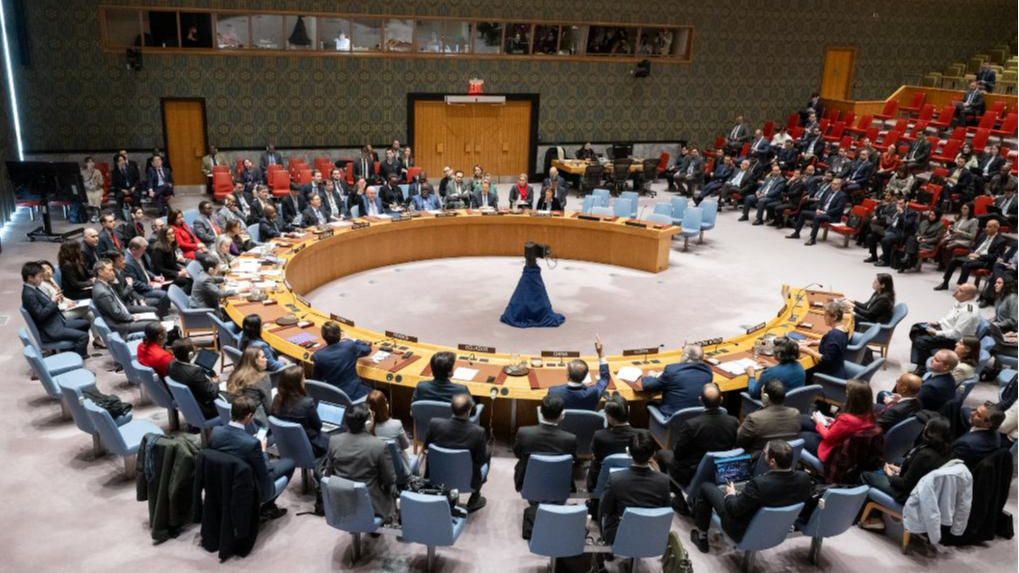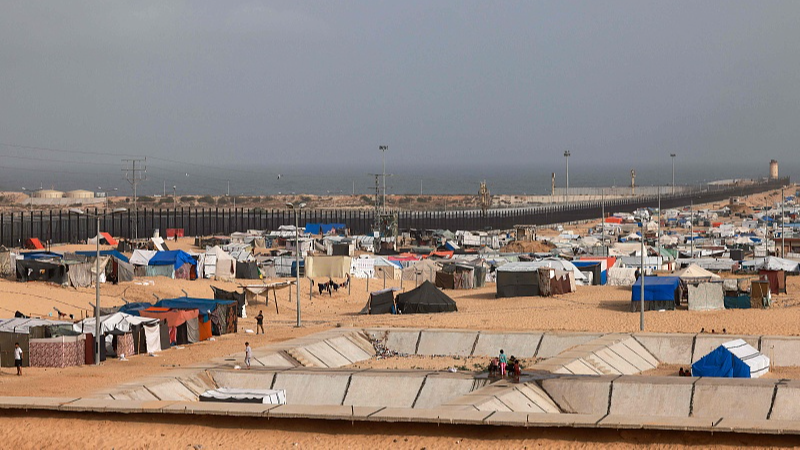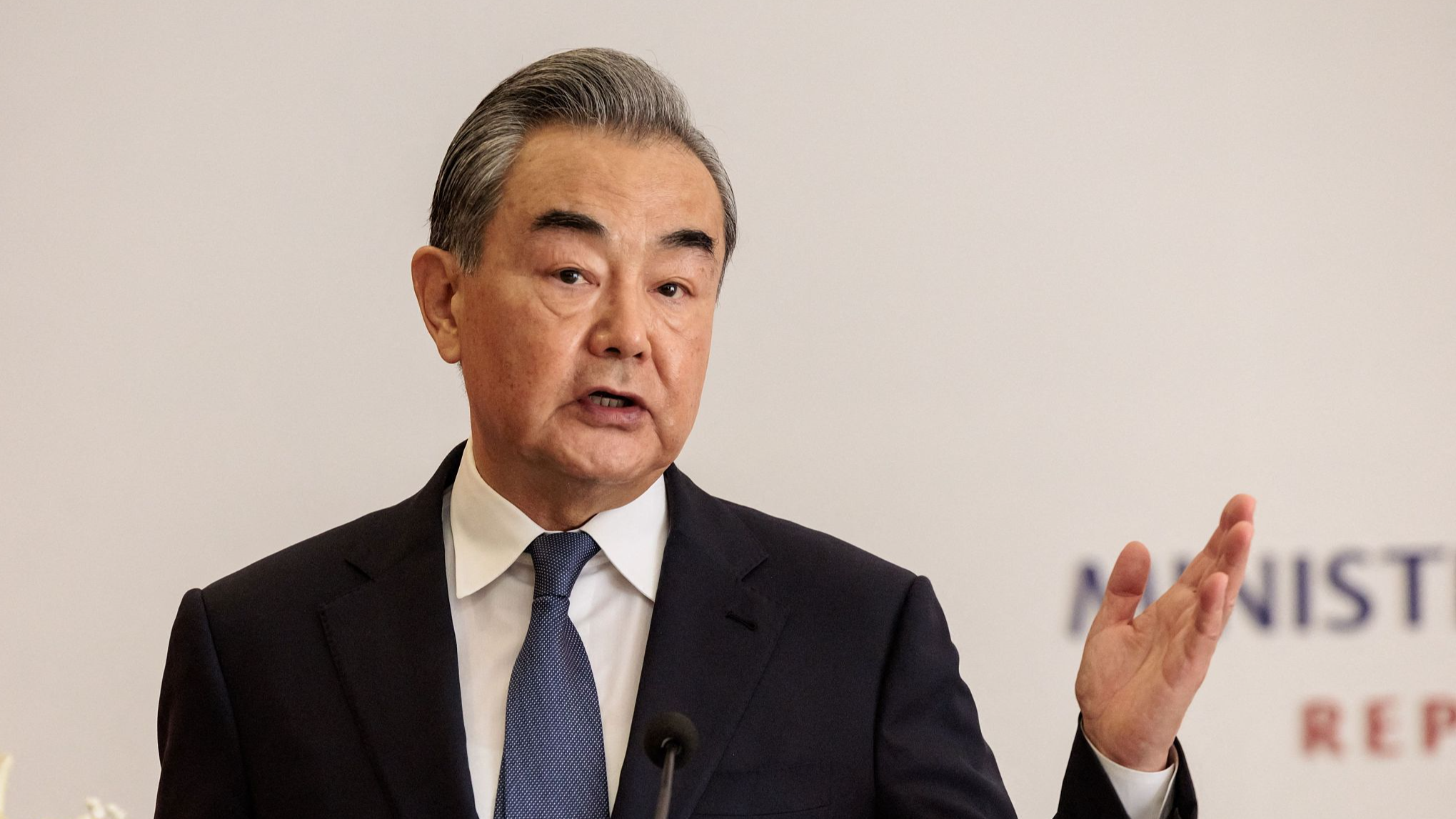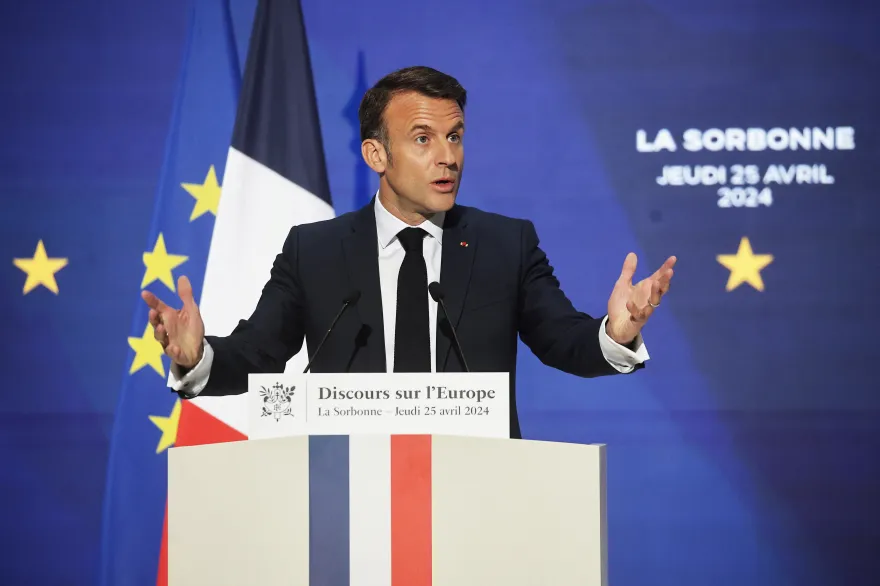The United Nations Security Council on Friday turned down a U.S. draft resolution on the Gaza ceasefire due to China and Russia exercising their vetoes. China says the U.S. draft is ambiguous in calling for an immediate ceasefire and that it only sets preconditions for a ceasefire, which essentially green-lights continued killing.
During his explanatory statement following the Security Council’s vote on the Palestine-Israel issue draft resolution, China’s permanent representative to the United Nations, Zhang Jun, said that “an immediate ceasefire is the basic premise” for saving lives, expanding humanitarian access, and preventing further conflict.
The ambassador pointed out that the U.S. draft was “unbalanced in many aspects,” especially concerning Israel’s recent repeated declarations of planning military attacks on Rafah.
“The draft did not clearly oppose such actions, sending a very wrong signal with serious consequences,” the ambassador added.
China calls for unconditional ceasefire
Over 160 days have passed since the outbreak of the Gaza conflict, in which more than 32,000 civilians have been killed and millions are suffering from famine. Zhang said the most urgent action to be taken by the council is to promote an “immediate, unconditional, and sustained ceasefire.”
While invoking Article 99 of the Charter, he stressed that this is the “universal call” of the international community.
“The council has dragged its feet and wasted too much time in this regard,” the envoy pointed out.
China: U.S. draft is ambiguous on ceasefire
Zhang recalled that the U.S. introduced its own draft resolution after vetoing the overwhelming consensus among council members on an immediate ceasefire on February 20.
“Over the past month, the draft has undergone several iterations and contains elements that respond to the concerns of the international community. But it has always evaded and dodged the most essential issue, that is, a ceasefire,” he stressed.
The final text remains “ambiguous” and “does not call for an immediate ceasefire,” said Zhang. “Nor does it even provide an answer to the question of realizing a ceasefire in the short term.”
The ambassador noted that members of the council have now before them another draft resolution that was “the result of collective consultations” among the non-permanent members of the council.
China supports resolution by collective consultations
“This draft is clear on the issue of a ceasefire, in line with the correct direction of the council’s action, and of great relevance. China supports this draft. We hope that the members of the council will reach an agreement on this basis as soon as possible and send a clear signal calling for an immediate ceasefire and an end to the fighting.”
Zhang noted that, like other members, China has from the outset called for the immediate release of all hostages, a repeated demand in Security Council resolutions 2712 and 2720.
“We welcome the mediation efforts by Egypt, Qatar, and others to this end. And we hope that all detainees will be released at an early date.”
China opposes ‘groundless’ U.S. accusations
The ambassador said that China rejects the accusations of “cynicism” by the U.S. and Britain against China’s voting position.
“Those are groundless accusations. If the U.S. is serious about a ceasefire, it wouldn’t have vetoed time and again multiple council resolutions, and wouldn’t have taken such a detour and played a game of words while being ambiguous and evasive on critical issues,” he said.
“If the U.S. is serious about a ceasefire, then please vote in favor of the other draft resolution clearly calling for a ceasefire, so that a ceasefire can be finally and immediately achieved, the Palestinians’ sufferings ended, and hostages released at an early date. For the U.S. at the current stage, what is most important is not words, but actions,” he added.
The ambassador pledged that China will continue to work with council members and the international community to play “a responsible and constructive role” to achieve a ceasefire and put an end to the fighting, alleviate the suffering, implement the two-state solution, and promote a comprehensive, just, and lasting solution to the question of Palestine.
Source(s): CGTN

 News7 days ago
News7 days ago
 News7 days ago
News7 days ago
 News7 days ago
News7 days ago
 News3 days ago
News3 days ago
 News6 days ago
News6 days ago
 News3 days ago
News3 days ago
 News6 days ago
News6 days ago
 News5 days ago
News5 days ago


















